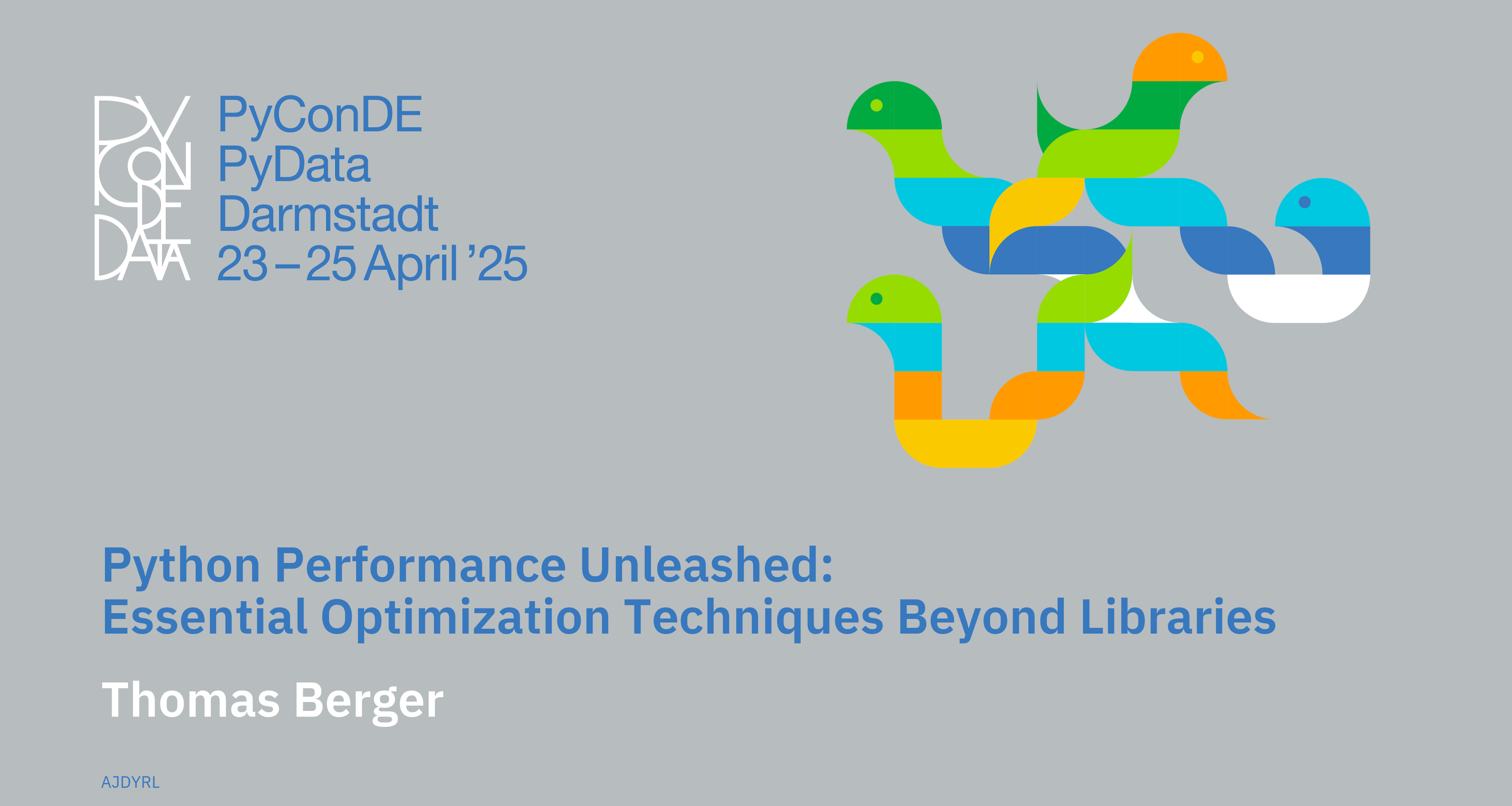Performance optimization remains a critical challenge in Python development. While Python's simplicity and extensive ecosystem make it the language of choice for many applications, its interpreted nature can lead to significant performance bottlenecks. This is particularly evident in data-intensive applications, machine learning pipelines, and large-scale production systems where every millisecond counts.
Many developers immediately reach for external libraries or complex solutions when facing performance issues. However, Python's standard library and built-in features offer powerful optimization opportunities that are often overlooked. Understanding these fundamental optimization techniques not only improves code performance but also helps developers write more efficient code from the start.
This talk addresses the core performance challenges faced by Python developers daily. From memory management to algorithmic efficiency, we'll explore how seemingly simple code changes can lead to substantial performance improvements. Through practical examples drawn from real-world applications, we'll demonstrate how to identify, measure, and optimize performance bottlenecks effectively.
